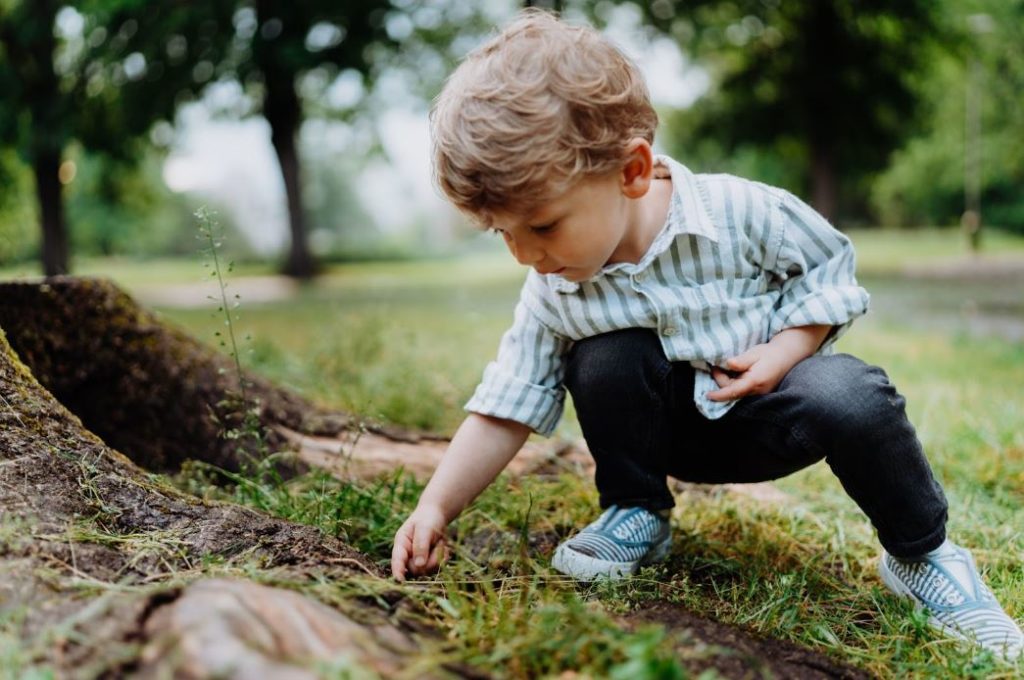The Power of Play in the Early Years
At Mount Peter Early Learning, we know that play is more than just fun. It’s how children make sense of the world around them. Through play, they explore, experiment, and develop the skills they’ll carry for life.
That’s why we take a play-based learning approach – it’s not only engaging, but it supports each child’s development in ways that feel natural, age-appropriate, and meaningful.
What is Play-Based Learning?
Play-based learning is precisely what it sounds like: learning through play. But it’s not just free play. It’s a thoughtful combination of:
- Child-led play: where children choose their activity and pace
- Educator-guided play: where play is supported to deepen learning
- Group play: where children learn collaboration, empathy, and communication
Educators carefully observe and support play to gently guide learning without interrupting a child’s curiosity or flow.
Why It Works
Play creates the perfect space for children to learn by doing. It allows them to take safe risks, solve problems, ask questions, and make choices. This kind of active learning is exactly what young brains are wired for.
It also supports a wide range of developmental areas: cognitive, emotional, physical, and social, in a way that feels enjoyable, not pressured.
The Benefits of Play in Early Years
The early years are a critical time for brain development. Play-based learning builds strong foundations that support everything from literacy and numeracy to emotional resilience. Here’s how:
1. Builds Thinking and Communication Skills
Whether they’re building a tower or planning a pretend café, children are thinking, reasoning, and problem-solving. They’re also developing essential language skills as they express ideas, ask questions, and engage in conversations with peers.
2. Encourages Social and Emotional Growth
Through play, children practise turn-taking, negotiation, empathy, and cooperation. They also begin to manage emotions, navigate friendships, and feel a sense of belonging.
3. Supports Physical Development
Play naturally involves movement: climbing, balancing, drawing, running, and threading beads. These activities strengthen both fine and gross motor skills, improving coordination and confidence.
4. Fosters Independence
Many early learning activities involve making choices, trying things out, and learning from mistakes. This helps children become more independent and confident in their abilities.
What Does Play Look Like at Mount Peter?
Our environments are designed to support play-based learning every step of the way. Inside, you’ll find:
- Cosy reading corners and imaginative play zones
- Art stations with paints, natural materials, and creative tools
- Sensory trays filled with sand, rice, or water for exploration
Outside, children have access to open spaces where they can run, build, climb, and explore nature, including our forest school program.
Each area is intentionally set up with learning through play in mind.
The Role of Educators in Play-Based Learning
Educators at Mount Peter don’t just supervise; we are active participants in each child’s learning journey. We observe closely, ask open-ended questions, and set up experiences that reflect the children’s interests and developmental needs.
If a group of children shows interest in insects, for example, we might set up a discovery table with magnifying glasses, bug books, and drawing materials. This transforms curiosity into rich, hands-on learning.

How Play-Based Learning Prepares Children for School
Parents often ask how play fits into school readiness. The truth is, play is one of the most effective ways to prepare children for the more structured environment of school.
Play helps children develop:
- Early literacy and numeracy skills
- Focus and attention
- Emotional regulation
- Problem-solving strategies
- Confidence to explore new routines
Through meaningful early learning activities, children build the exact skills they need to transition smoothly into the next stage of their education.
Encouraging Play at Home
You don’t need expensive toys or a big backyard to support your child’s learning through play at home. Here are a few simple tips:
- Give them time and space for free play
- Offer open-ended materials like boxes, fabric, or blocks
- Let them lead – follow their ideas and interests
- Ask thoughtful questions like “What do you think will happen if…?”
- Allow for mess! Play is supposed to be hands-on
A Lifelong Love of Learning Starts Here
At Mount Peter, we see the magic of play-based learning every day. It’s in the way children light up with ideas, work together to solve problems, and build confidence with every challenge they try.
We’re proud to offer a warm, caring environment where play isn’t just encouraged, it’s celebrated!